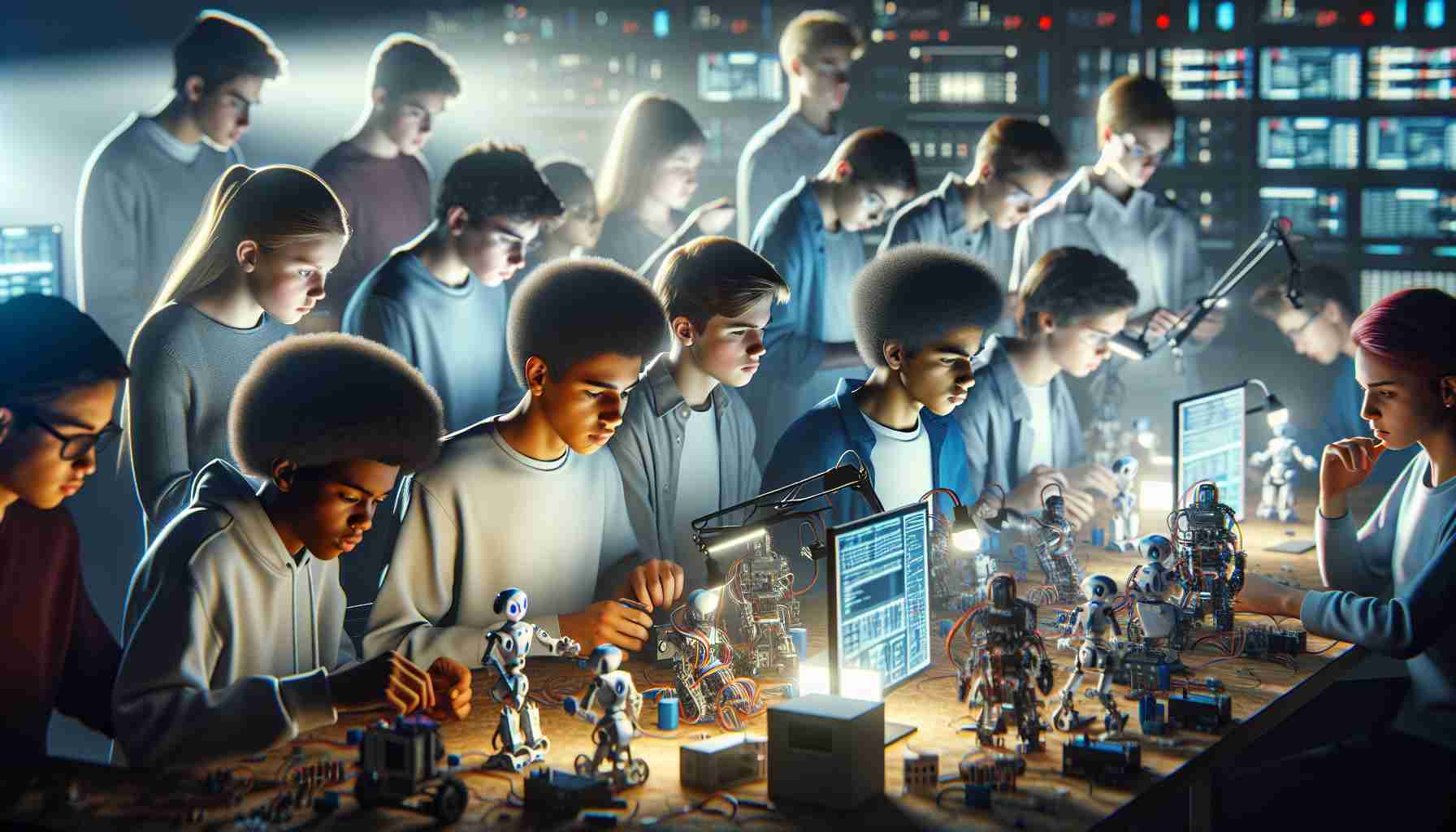- Teenage robotics teams in Silicon Valley are actively participating in the 2024-2025 FIRST Tech Challenge, utilizing garages as innovation hubs.
- The Robopocalypse team from Wilcox High School exemplifies dedication, spending up to four hours daily on robot design and programming.
- Success in competitions, such as winning the Inspire Award, provides teams opportunities for prestigious regional competitions.
- Participants often aspire to careers in engineering and business, gaining valuable skills for future educational and internship opportunities.
- This year’s challenge focuses on ocean health, with robotic matches simulating environmental tasks.
- Parental involvement enhances team experiences, helping students build leadership skills through hands-on learning.
- Robotics offers an exciting pathway for students to explore their curiosity and talents.
In the heart of Silicon Valley, as high school halls grow quiet, a different kind of buzz emerges from garages transformed into innovation hubs. Here, teenage robotics aficionados huddle around intricate machinery, fueled by passion and a fierce commitment to the 2024-2025 FIRST Tech Challenge.
At Wilcox High School, the Robopocalypse team, comprised of 12 dedicated members, dedicates two to four hours each day to designing and programming their robots. Just recently, they clinched the Inspire Award and second place at a local tournament, earning their spot at the prestigious FTC NorCal Regional Tournament. But for them, it’s not just about the accolades; it’s about the experience.
Enthusiastic voices reveal that many plan to pursue careers in engineering and business. They know mastering robotics provides invaluable skills for college and future internships. The team mentors emphasize the importance of learning and creativity, with one co-founder humorously noting their success lies in steering bright minds away from law to embrace scientific fields.
This year’s challenge, themed “Into the Deep,” spotlights ocean health and allows competitors to showcase their robots in thrilling two-and-a-half-minute matches, simulating the retrieval of plastic blocks resembling sea creatures.
Parents play a critical role, attending competitions and supporting their children as they develop leadership skills and share lessons learned through trial and error.
Encouraging anyone with a spark of curiosity, junior Saanvi Kumara insists, “It’s really fun! It’s worth a try!” The world of robotics is an exhilarating gateway to future careers—so why not dive into the adventure?
Unlocking the Future: The Rise of Teen Robotics Teams in Silicon Valley
The Thriving Robotics Scene at Wilcox High School
In the flourishing landscape of Silicon Valley, robotics teams like the Robopocalypse at Wilcox High School embody the spirit of innovation and technical advancement. Participants not only engage in intense competitions but also develop essential skills that serve them well in their future careers. With the 2024-2025 FIRST Tech Challenge themed “Into the Deep,” students are diving into critical issues like ocean health using robotics as their platform.
New Insights and Relevant Information
1. Competition Structure and Teams: The FIRST Tech Challenge (FTC) typically involves teams designing, building, and programming robots to compete in a series of matches. This year’s rules encourage creativity in tackling real-world problems, making it a breeding ground for innovation.
2. Skills Development: Participating in these competitions equips students with critical thinking, teamwork, and technical skills—often regarded as essential for careers in STEM fields. Data shows that students involved in robotics have a higher likelihood of pursuing degrees in engineering or technology.
3. Long-term Engagement: Many students express intentions to remain involved in STEM beyond high school, which is reinforced by mentorship opportunities and scholarships offered through organizations like FIRST. The impact of such competitions can often shape career paths as early as high school.
FAQ: Key Questions Answered
1. What benefits do high school students gain from participating in robotics competitions?
Participants gain hands-on experience in design, programming, and problem-solving. They also develop soft skills such as leadership and teamwork, crucial for college and career readiness.
2. How does the FIRST Tech Challenge enrich the educational experience?
The FTC incorporates real-world problems that students must solve through engineering and technology. This approach fosters creativity and promotes a deeper understanding of practical applications in various fields, especially within science and engineering.
3. What are some challenges faced by robotics teams?
Challenges include limited funding for materials, time management between schoolwork and robotics, and the technical difficulties inherent in robot design and programming. Teams often address these hurdles through community support and effective mentorship.
Additional Insights
– Market Trends: The popularity of robotics programs in schools is on the rise, with more institutions incorporating them into their STEM curricula. This trend reflects a growing recognition of the importance of technical skills in the modern workforce.
– Future Predictions: As technology evolves, the integration of robotics in education is expected to deepen, preparing students for increasingly complex roles in the future job market.
– Sustainability Aspects: The theme “Into the Deep” not only focuses on robotics but also emphasizes the importance of addressing environmental issues, suggesting that future innovations in robotics may increasingly aim to solve global challenges.
For more on robotics and education, check out FIRST Inspires.
